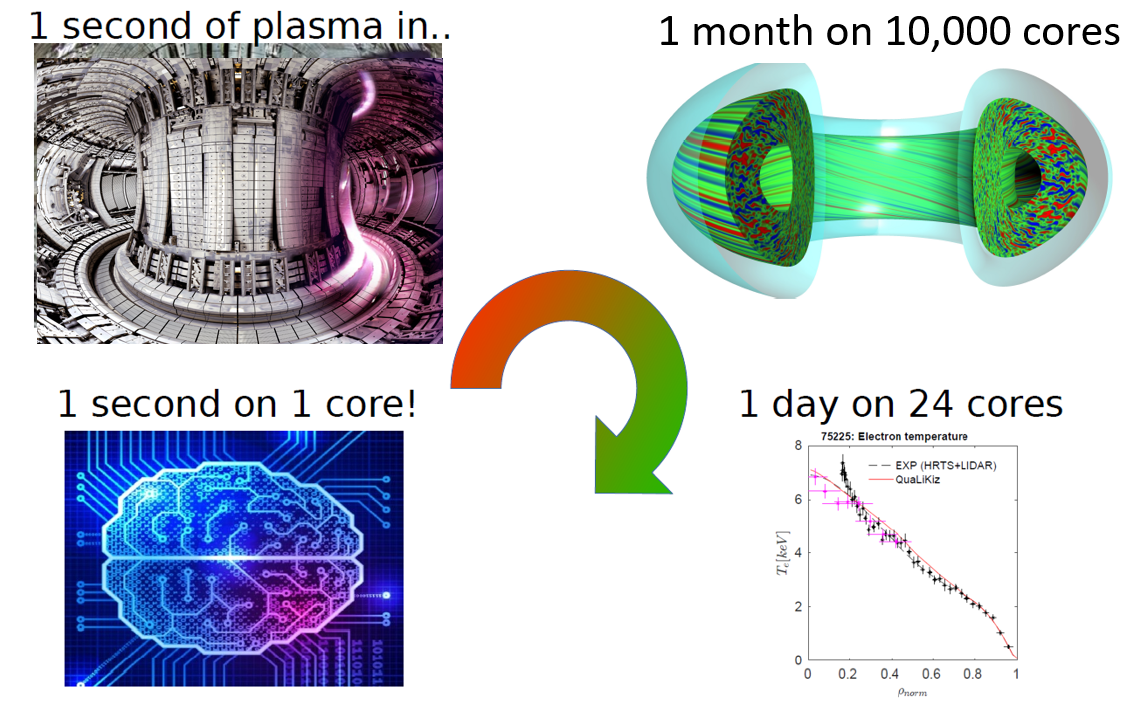DIFFER has landed an Enabling Research grant from the Horizon2020 programme EUROfusion. The consortium between DIFFER, CEA Cadarache (France), and the Swiss Plasma Center, aims to significantly accelerate fusion reactor simulation through application of machine learning methods. DIFFER scientists Jonathan Citrin (principal investigator), Karel van de Plassche, and Aaron Ho in the Integrated Modelling and Transport group will receive EUROfusion support in 2019-2020 towards this goal.
In fusion, energy is produced by transforming mass to energy using lightweight atoms (hydrogen isotopes). The high temperatures necessary to sustain the reactions means that fusion takes place in a turbulent plasma environment. Understanding, predicting, and controlling the turbulent plasma flows is crucial to tailor plasma conditions for optimal fusion reactor performance.
 The grant will facilitate the development of fast neural network models for fusion plasma turbulence calculations. High performance computing is applied to generate an extensive database of a physics-based reduced turbulence model co-developed at DIFFER and CEA Cadarache (www.qualikiz.com). Neural networks are then used to provide a computationally cheap surrogate for the reduced model, opening up unprecedented opportunities for reactor optimisation and control-oriented applications.
The grant will facilitate the development of fast neural network models for fusion plasma turbulence calculations. High performance computing is applied to generate an extensive database of a physics-based reduced turbulence model co-developed at DIFFER and CEA Cadarache (www.qualikiz.com). Neural networks are then used to provide a computationally cheap surrogate for the reduced model, opening up unprecedented opportunities for reactor optimisation and control-oriented applications.
EUROfusion: joint European fusion research
The EUROfusion consortium is the umbrella organisation of European fusion labs, with DIFFER as the Dutch national member. The Enabling Research scheme arises from EUROfusion identifying key projects for fusion energy outside its standard program scope. Enabling Research grants fill critical gaps in the pursuit of new science and technology for fusion, and furthermore aims to increase the exchange of ideas from other fields.
Go to the News page.